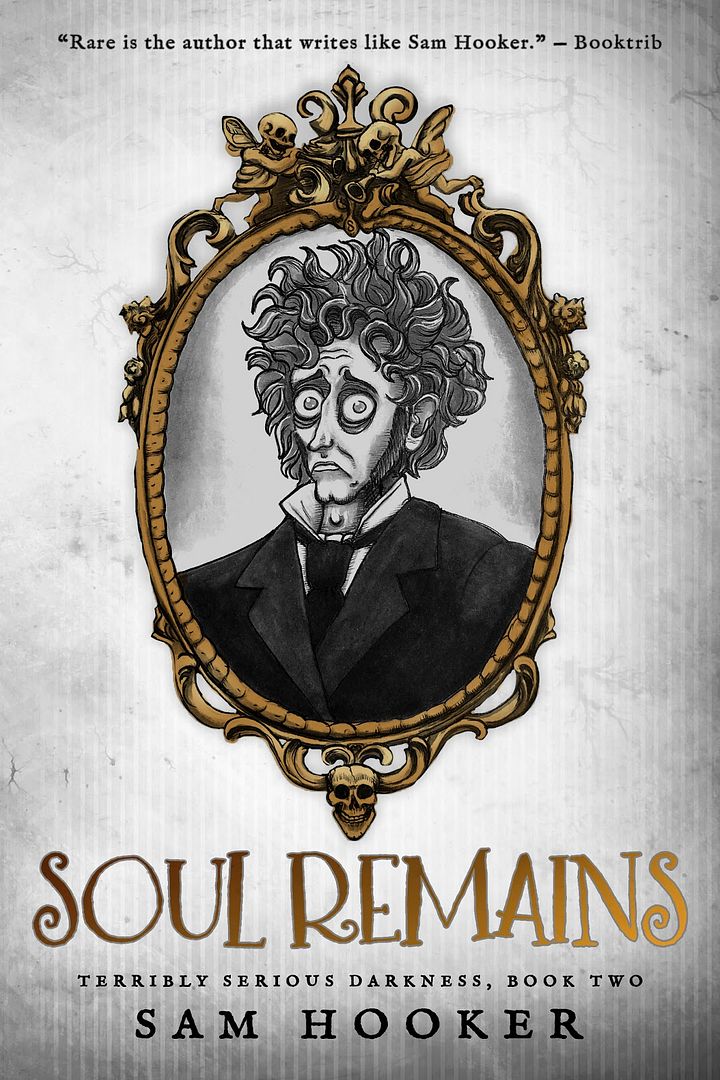There is a common misconception among the living that death is the end of it. Go vigorously onto the business end of a sword, wear the colors of a west-end boulderchuck team into an east-end pub, or simply hang around long enough for your organs to start switching off, and that’s the end of the line.
On the contrary, there is such a thing as death for the dead. No one is really sure how long it takes, but eventually, each and every ghost withers away and ceases to be.
“So that’s it then,” said Sloot after an indeterminate amount of time. “I’ll be a ghost until I’m nothing.”
“Well, not nothing,” said Hans. “Not necessarily.”
“Something else, then?”
“Well, there’s considerable debate on the topic. Especially among the philosophers.”
As if things weren’t already bad enough, thought Sloot. He knew it was coming. It was only a matter of time before—
“Did someone say philosophy?” Arthur appeared in the doorway, his moustaches standing on end.
Oh, no, thought Sloot. “Please, nobody say any—”
“Hans was just telling us that no one knows whether ghosts are really gone after we fade away.”
Arthur’s eyes were wild, like a lion who hadn’t eaten in a week. Geralt must have resembled a porterhouse.
“Portnoy the Sacrilegious once chained himself to the doors of the cathedral to prove the impossibility of life after death! He was wrong, obviously, but his arguments are sound if applied to life after death after death.”
“Well said, Arthur,” Sloot blurted. “I think that’s all that anyone can—”
“Malarky,” said Hans. “You’re saying there’s nothing beyond the Hereafter, based on a theory that there is no Hereafter?”
“I’ve still got a few more questions—” Sloot began.
“It’s not that simple!” Arthur was pacing around the room and gesticulating wildly. Myrtle had always refused to indulge him in that while he had her possessed. “It makes sense in light of his Treatise on Bedtime Disobedience—which he wrote when he was eight—but only if you understand the finer points of Mauler’s Unticking Clock. I can solve this in … seventeen moves!”
“I’m sure you can,” said Sloot, “but I really need to ask Hans about—”
“I studied Mauler in college,” said Geralt. “The Unticking Clock is a metaphor for the struggle between hunger and apathy. I hardly think it applies—”
“That’s where you’re wrong!”
Sloot wandered off. He could never stomach philosophy for this very reason. Even if you didn’t know anything about Nutter’s Hungry Clock or whatever, you could join in the conversation with your angriest voice. Philosophy, as far as Sloot could tell, was the art of determining who could have the loudest opinion while not doing anything useful.














0 comments:
Post a Comment
Hateful and Unrelated Comments Will Be Deleted. Anonymous comments are invalid to enter into giveaways.